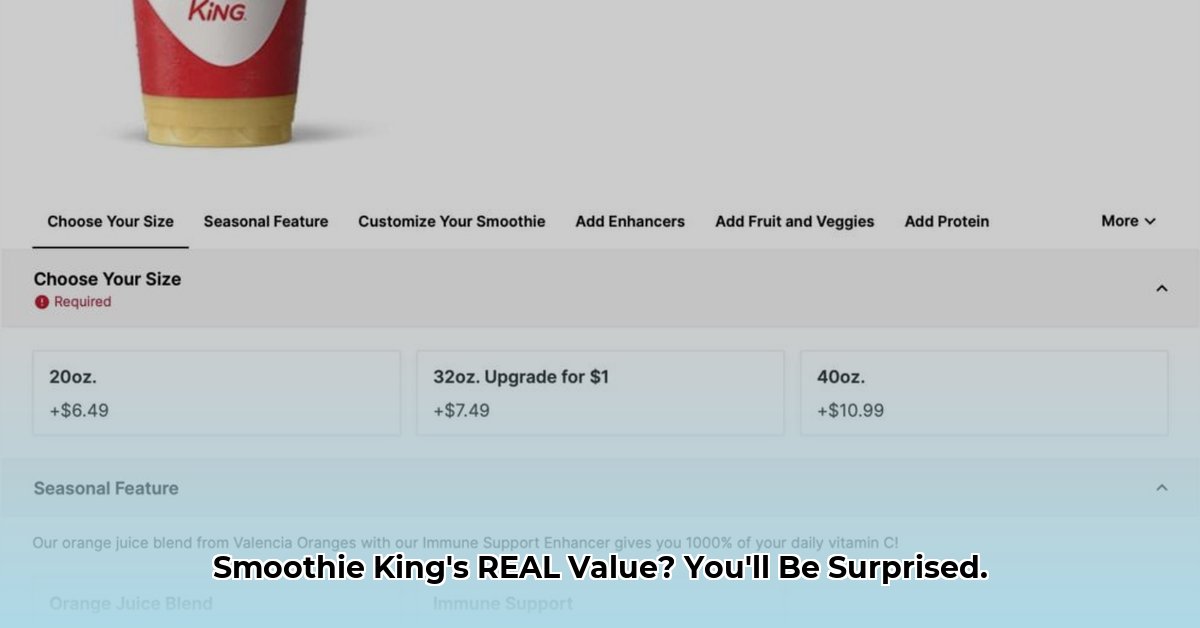
Smoothie King’s net worth is a frequent topic of curiosity. However, as a privately held company, Smoothie King is not required to publicly disclose its financial details. Therefore, determining a precise net worth figure is not possible. This article will instead explore the available information—revenue trends, franchise growth, and key business decisions—to provide context and insights into Smoothie King’s overall value.
Revenue and Growth: Clues to the Kingdom’s Value
While a precise net worth remains elusive, examining Smoothie King’s revenue offers valuable clues. Data from 2012 indicated $372.5 million in revenue. However, this figure is over a decade old and likely significantly lower than current figures. More recent information suggests a substantial increase in per-store revenue, with average net sales for franchise locations ranging between $590,000 and $609,000 between 2019 and 2022. This growth likely points to a significant increase in overall company revenue. It’s important to note that this more recent data is also likely not entirely up-to-date.
| Year | Revenue (USD) | Average Unit Volume (USD) |
|---|---|---|
| 2012 | $372.5 Million | $362,000 |
| 2019-2022 | Not Publicly Available | $590,000 - $609,000 |
 (Insert Smoothie King Logo Image Here)
(Insert Smoothie King Logo Image Here)
The Franchise Footprint: Expanding the Kingdom
Smoothie King’s aggressive franchise expansion strategy, spearheaded by CEO Wan Kim, is a key driver of the company’s value. While precise franchise counts are difficult to obtain, the addition of over 100 new locations globally in 2022, with a goal of 800 more locations, suggests substantial growth. This expansion not only increases revenue streams but also strengthens brand recognition and market presence, all of which contribute to a higher overall valuation.
The Wan Kim Influence: A $60 Million Investment
Wan Kim’s 2012 acquisition of Smoothie King, financed with approximately $60 million, signals a strong belief in the company’s potential. Kim’s prior success with Kyung In Electronics suggests a keen business acumen and adds weight to his investment decision. This significant financial commitment serves as a strong indicator of Smoothie King’s perceived value and potential for future growth.
“Clean Blends”: A Recipe for Future Value?
Smoothie King’s “Clean Blends” initiative, emphasizing natural ingredients and nutritional transparency, is likely to positively impact the company’s future value. This strategic move aligns with growing consumer demand for healthier options and may contribute to increased sales and brand loyalty. While the precise financial impact is difficult to quantify, the “Clean Blends” strategy positions Smoothie King favorably within the evolving health and wellness market.
Franchise Opportunities: The Cost of Entry
The investment required to become a Smoothie King franchisee offers further insights into the brand’s value proposition.
| Metric | Range/Value |
|---|---|
| Initial Franchise Fee | $15,000 - $30,000 |
| Total Investment | $311,601 - $1,379,000 |
| Royalty Fees | 6% of gross sales |
| Marketing Fees | 3-4% of gross sales |
The substantial financial commitment, ranging from $311,601 to $1,379,000, suggests a belief in the profitability and long-term value of a Smoothie King franchise. Remember, however, that franchise costs do not directly equate to the company’s net worth, but they do reflect the resources required to become part of the brand. Also, the Franchise Disclosure Document (FDD) provides essential information on potential franchise earnings.
Conclusion: Assessing the Value of the Blend
While Smoothie King’s precise net worth remains undisclosed, the available data provides valuable context. Revenue growth, aggressive franchise expansion, Wan Kim’s strategic leadership, and the “Clean Blends” initiative all point to a company likely experiencing continued growth. These factors, when analyzed together, suggest that Smoothie King holds a substantial and potentially growing value within the competitive beverage market.
Disclaimer: Smoothie King’s net worth is not publicly available. This analysis is based on available data and industry trends and should not be considered a definitive valuation.